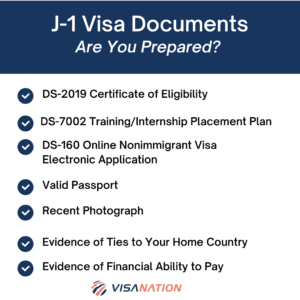With Vaishali Udupa Set to Take the Helm as Commissioner for Patents, USPTO Leadership Now Lacks Prosecution Prowess
“The concern is that there is now no one in the top three roles at the USPTO who truly understands patent examination or patent examination policy.”
January 17 marks the first day in the tenure of the U.S. Patent and Trademark Office’s (USPTO’s) new Commissioner for Patents, Vaishali Udupa. Udupa, whose appointment was announced in December, comes to the USPTO after serving the last seven years as the head of litigation for Hewlett Packard Enterprise, where she was responsible for heading HPE’s intellectual property litigation and formulating case strategies. She replaces Acting Commissioner for Patents Andrew Faile, who served in that role since January 2021 and who will be retiring from the agency after 33 years upon Udupa’s installation as commissioner.
Well-known within the patent community as an advocate for diversity and representation issues, Udupa joins the USPTO as a relative outsider. She comes in as the first full Commissioner for Patents since the retirement of Drew Hirshfeld, who served with the agency for two decades before he was first appointed to Commissioner in 2015. Those familiar with recent Patent Office history will recall that Commissioners immediately preceding Hirshfeld included Bob Stoll, Peggy Focarino, John Doll and Nick Godici. Stoll, Focarino, Doll and Godici each served in various capacities at the Office, including in high-level policy and regulatory positions, for more than a generation prior to becoming Commissioner.
While Udupa is a fine and capable attorney, IPWatchdog has learned that some inside the Office are expressing concern that Udupa, along with USPTO Director Kathi Vidal and Deputy Director Derrick Brent, have no patent prosecution experience. Deputy Commissioner for Patents, Valencia Martin Wallace, who has been with the USPTO for 28 years, will now be the most senior person at the Office who has any real prosecution experience, but having been passed over for the post of Commissioner one must wonder whether she will stay with the Office or seek to move elsewhere. There is indeed precedent at the USPTO for those who have been similarly passed over leaving the agency for other roles in government. Therefore, there is real concern is that there is now no one in the most senior leadership roles at the USPTO who truly understands patent examination or patent examination policy. Most alarming, perhaps, is that the role of Commissioner over the years has become one of Chief Operating Officer for patents, a very hands-on role by those who are intimately familiar with the process and procedures.
In certain ways, Udupa’s ascension into her new role at the USPTO is reminiscent of former USPTO Director Michelle Lee’s elevation to the agency head position. Both officials came into their official roles after long stints as Silicon Valley executives responsible for developing IP litigation strategies for their respective Big Tech firms and will now have to manage much larger workforces responsible for administering the United States’ national system of patent rights.
On top of this, President Joe Biden has yet to appoint an IP Enforcement Coordinator. Without top leadership on IP to advise the President, there’s a danger that core patent issues will fall off the map—or be driven by outdated narratives. In short, as capable as the top leadership of the USPTO may be—and they are all very capable and experienced attorneys—it seems little to none of their portfolio of experience collectively extends to the primary job of the USPTO, which is to examine patent applications.
Udupa Has Excelled on Diversity but Pushed the Patent Troll Narrative
In July 2019, Modern Counsel ran a profile on Udupa which lauded the then-assistant general counsel of HPE for her efforts in advancing the prospects of women attorneys in the IP space. Indeed, Udupa’s fervent advocacy for those in the legal industry coming from underrepresented backgrounds is honest and should be commended and is likely an important factor in why she was selected given the Administration’s push to increase the number of women inventors—a project she is expected to spearhead at the Office. She currently serves as the Co-Chair of the Honor Roll Committee for the ChIPs Network, a nonprofit organization representing women employed in IP legal departments and boasting 5,000 members, and in 2020 she received the 2020 Diversity in Tech and IP Law Award from the National Bar Association. In April 2021, ChIPs Co-Founder Mallun Yen, who was formerly Deputy General Counsel for Cisco and Chief Business and Product Officer for RPX Corporation, credited Udupa with an idea to amend the agency’s inventor oath and declaration rules to improve the collection of demographic data in testimony Yen submitted to the Senate IP Subcommittee.
A deeper look into Udupa’s background, however, shows that during her time as an HPE executive, she had a particular focus on the activities of so-called “patent trolls,” a term that has aged in use even as it continues to lack a strong definition. The 2019 profile by Modern Counsel touted Udupa’s successes in using diverse legal teams to “fend[] off patent trolls in the Eastern District of Texas, the well-known capital of pro-patent-troll judgments.” In 2015, Above The Law ran an article covering a panel on IP litigation trends during which Udupa is quoted as saying, “Patent trolls are smart. They change with the landscape.” Back in June 2012, Udupa gave opening remarks at a summit on non-practicing entities (NPEs) and appeared on a panel discussing “4 Steps To Take Immediately When Served with an NPE ‘Love Letter.’”
During her time at Hewlett Packard, Udupa’s advocacy against patent rights for competitor firms was almost as salient as her efforts in diversifying her legal teams. In April 2013, Udupa was one of a series of general counsel signatories on a letter addressed to the U.S. Department of Justice and the Federal Trade Commission during their joint study on patent assertion entities (PAEs). That letter disavowed any positive impact PAEs could have in monetizing patent rights to benefit inventors and advanced well-debunked statistics on the supposed economic harms of PAEs. Then in December 2013, Udupa and several other Big Tech general counsel sent another response on the PAE study continuing to stoke fears about PAEs, all while acknowledging that much of the supposed harm was impossible to identify:
“The full impact of PAE activity on competition and innovation is largely hidden because it is within the exclusive knowledge of disparate PAEs, veiled behind the protections of nondisclosure agreements, or conducted through anonymous shell companies or indirectly through third parties. Litigation statistics are only ‘the tip of the iceberg’ because much PAE activity occurs outside the court room.”
The New Commissioner on SEPs at ITC
While “patent troll” is no longer the phrase du jour for tech executives seeking to evade infringement liability, other HPE filings during Udupa’s time as head of IP litigation show other troubling patterns that are more relevant to current debates. In December 2012, Udupa filed a brief in an International Trade Commission (ITC) Section 337 investigation reiterating HPE’s previous stances that issuing exclusion orders on standard-essential patents (SEPs) was detrimental to the public interest and that no situations warranted an exclusion order for infringing a patent subject to fair, reasonable and non-discriminatory (FRAND) obligations. While the December 2012 brief only reiterated HPEs past filings, Udupa was a co-signatory to one of those prior filings claiming that ITC exclusion orders “would harm thousands of companies and workers across the IT industry, beyond the thousands who are directly employed by the named respondents in the United States.”
Udupa/HPE Advocates for Multiple Petitions Against Same Patents at PTAB
In June 2017, Udupa was the sole signatory for HPE in a letter to the USPTO regarding validity proceedings at the Patent Trial and Appeal Board (PTAB) from a coalition of Big Tech firms including Google, Intel, Cisco and Amazon.com. The letter, submitted during the USPTO’s study into the impacts of multiple America Invents Act (AIA) trial petitions against a single patent, claimed that less than 0.2% of active patents had been challenged in AIA trials and that patents challenged in AIA proceedings only represented 17% of litigated patents. Given that only 4% of PTAB petitions result in a final written decision upholding the validity of all challenged patent claims, those Big Tech signatories would have great incentive to make sure that multiple petitions were still available to challenge competitor patent rights while downplaying their negative impacts on small businesses.
Whether these views on patent trolls, PAEs and the PTAB are her own or express the persuasive arguments of an attorney representing her client are unknown, but they do make up a part of her biographical record. Notwithstanding, many patent owners may be understandably concerned to connect these dots and see a return to certain ideologies detrimental to the interests of smaller stakeholders who need valid patent rights to survive challenges with certainty. Those observers of the U.S. patent system who would like to see a fairer system for all players involved would likely breathe easier if Udupa can successfully bring her ability to promote inclusivity to bear on government activities affecting smaller innovative companies who feel unfairly excluded from the nation’s patent system.






